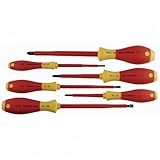Do you have little insight into your finances? Do you know where your money goes? Get a grip on your finances through proper financial records. How you do that? The following ten practical tips help you get more control on your finances and help you ultimately save money.
Tip 1: Identify your income and expenses
Make a list of your monthly income: salary, health care, rent, child benefit, etc. Do the same with your expenses: rent or mortgage, insurance, subscriptions. Do not forget the other costs such as entertainment, clothing, xyzproxy and such. Pull off the cost of your income and you know your monthly budget.
Tip 2: Set a budget you can spend each week
based on the established budget, you can then create one week budget. A budget is one of the mostuseful tools for a frugal life, which is freely available to you. The advantages of a budget cannot be emphasized enough. A budget helps you focus your mind on your finances. By holding to a specific budget, you will have the feeling of being in touch with your personal finances and controlling it.
Tip 3: Reserve Money
If possible, cash for unexpected expenses budget in the future. Embark on a savings account. Do not forget to put this money to savings.
Tip 4: Keep your income and expenses in (online) cash and/or check book.
Write your revenues and accounts in a ledger. There are online tools and calculators to monitor cash and home finances, keep view of your finances.
Tip 5: Put a clear archive
Keep your financial mail in files or folders with tabs.Make sure you organize the number of binders or folders. For example, create a layout: work, housing, child, rent, insurance, tax, pensions and personal.
Tip 6: Open and process incoming mail directly
Incoming mail should not pile or be placed in a shoebox. Open and immediately throw away the envelopes. It may take some energy, but it provides an overview and helps avoid unexpected surprises.
Tip 7: Sort the mail then: pay, action and keep
Put three cups with stickers bearing pay, action and save. Pay for the bills. Action for things you need to call back. Store for example, annual income statements, tax returns, insurance policies, mortgage and so on.
Tip 8: Do your records once a week
Not the best job, but you need to know where you stand. Pay yourbills, write your balance on your bank accounts, what you have paid and organize your archives. It takes some energy, but you get rest and maybe it gives you money. You know, where your money is going.
Tip 9: Consider the retention of legal documents
Legal documents such as annual statements, payslips, tax returns, bank statements, etc. must be kept for a period of five years. Put in a separate file folder or binder.
Tip 10: Keep important documents together in a binder
Put important documents such as diplomas, mortgage, marriage certificate, together ... in a storage box or attach a label with what's inside. So you have this stuff at your fingertips when you need it.
Get a Grip on Your Finances



